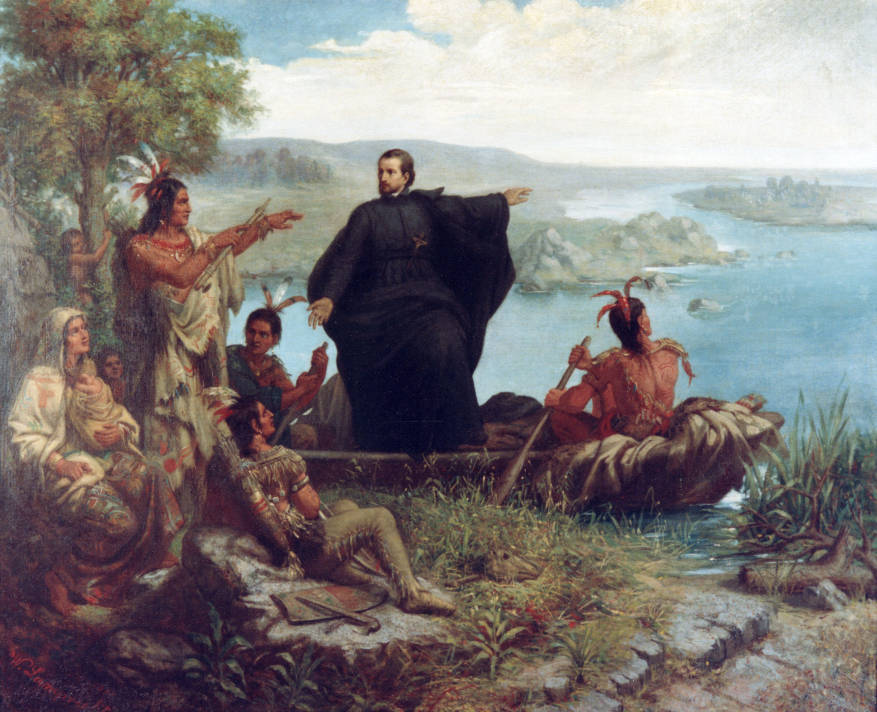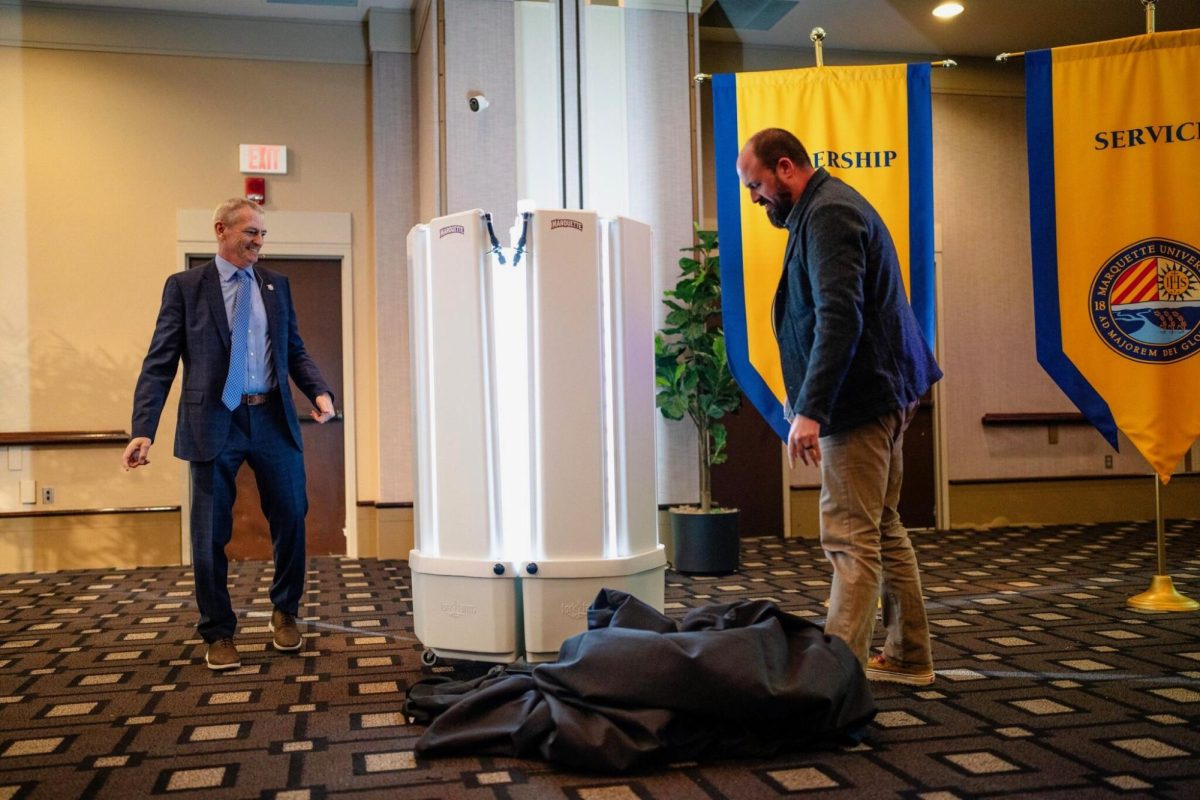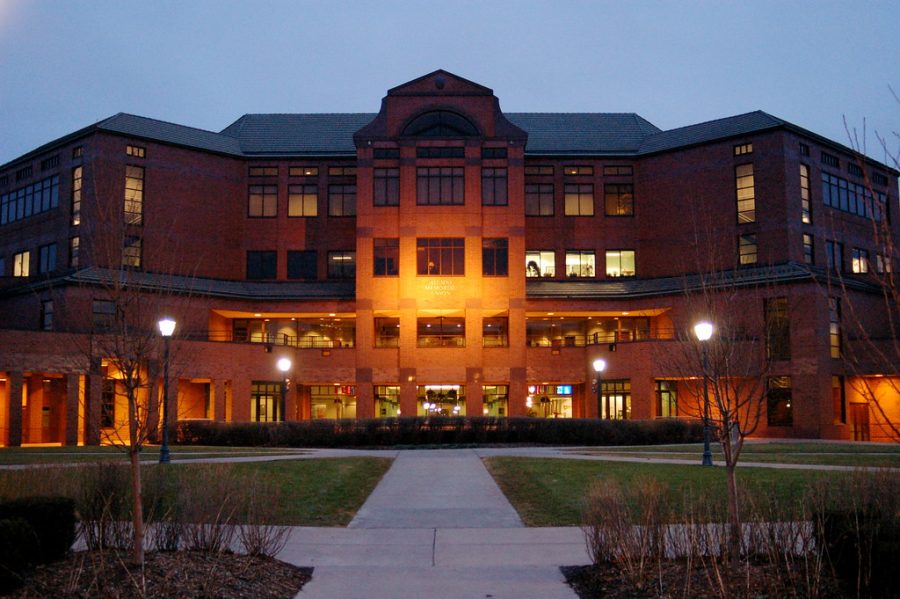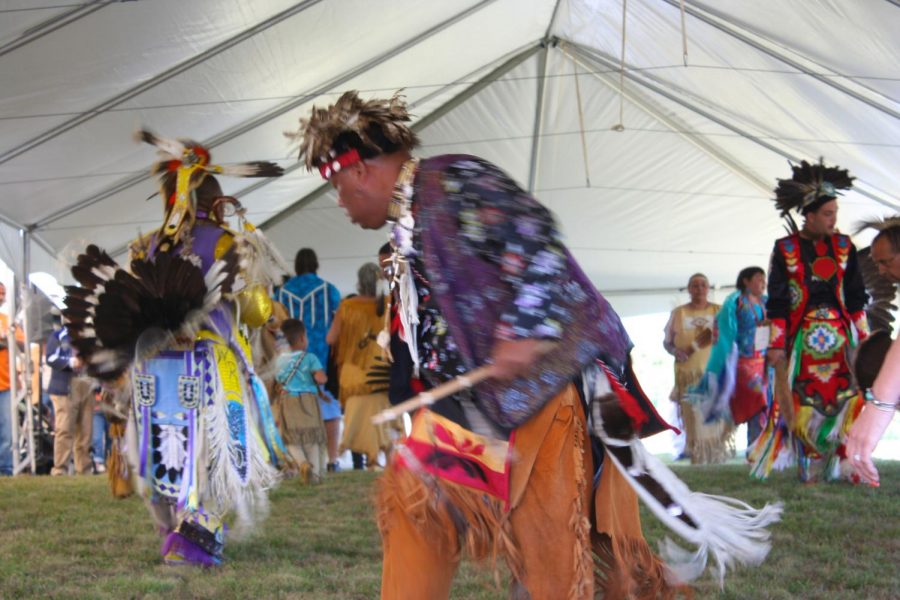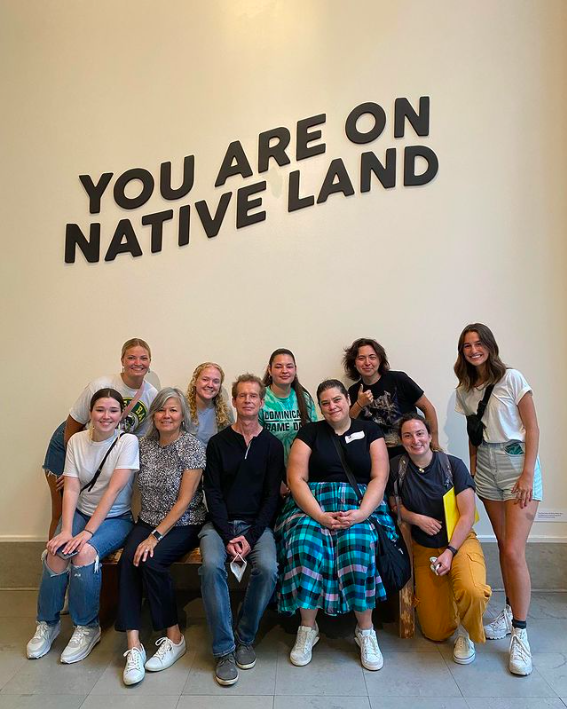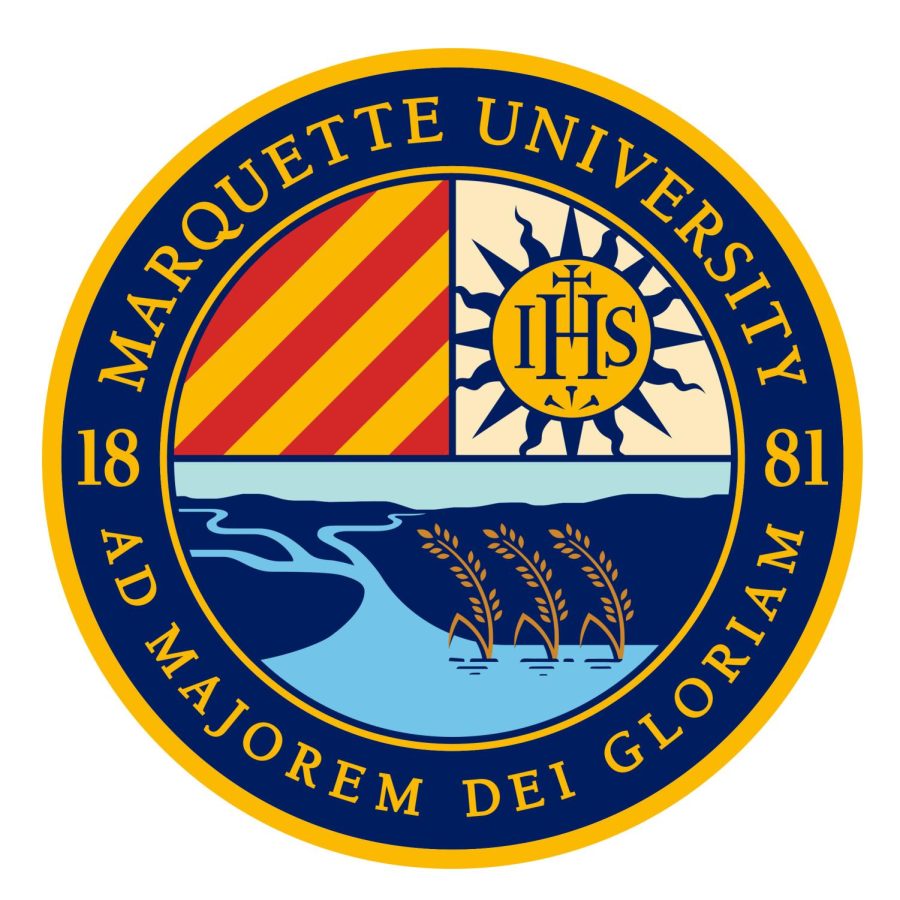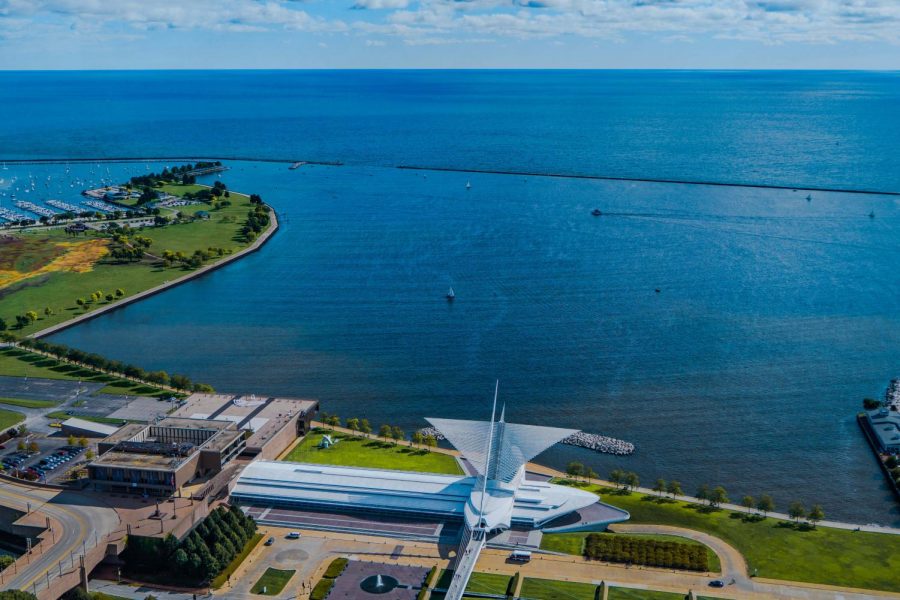As Indigenous peoples continue to adapt and persist across the United States in response to a myriad of challenges, like climate change, treaty violations and systemic oppression, it is essential that we all relearn our history and acknowledge the land we live on.
Marquette University has begun to take these steps as an institution.
The university announced Oct. 7 that it adopted a land and water acknowledgment that was created in partnership with the Native American Student Association.
In one part of the acknowledgement, the university said, “Marquette University further acknowledges and pays respect to the elders and ancestors past, present and emerging whose histories, knowledge and cultural traditions have shaped the land and water of the greater Milwaukee area and can enrich practices around its stewardship. We affirm our commitment to practice ongoing good relations with the land and water and with sovereign Indigenous Nations that caretake them.”
There is a written and oral version of the land and water acknowledgment, and it was developed over several months in consultation with NASA, director of public affairs, special assistant for Native American Affairs and associate professor of English Jodi Melamed and Marquette’s Council on Native American Affairs.
“Marquette University has adopted a land and water acknowledgment to recognize the long history of Native peoples and nations that lived on and stewarded the land and water where the university now resides,” the university statement said. “Both the written and oral versions of the land and water acknowledgment celebrate the unbroken connection Native people and nations still have to this land and waterways, their traditional territories.”
Adopting a land and water acknowledgment is a positive first step in recognizing the Indigenous communities who have lived on the land and who continue to live on the land.
Other universities near Marquette have also adopted land and water acknowledgments, such as UW-Milwaukee, UW-Madison and University of Loyola-Chicago.
While Marquette said in its announcement that the land and water acknowledgment can be read aloud at the start of any virtual or in-person event hosted on campus, it doesn’t make it mandatory.
Not requiring all individuals or groups hosting events at Marquette to read the land and water acknowledgment aloud seems to be counterintuitive; the university should be strongly encouraging or requiring people on campus to acknowledge and reflect on the Indigenous communities’ lands that Marquette is built upon more often. Coming into contact with this reality on a frequent basis is necessary to not only address our history but to also recognize the significance of the Menominee, Potawatomi, Ho-Chunk, Maschouten, Sauk and Ojibwe nations who have lived on these lands for a millennia and continue to live on these lands today.
Not being more strict about implementing and reading the land and water acknowledgment seems to devalue its importance and legitimacy. Acknowledging and relearning history can be a stepping stone to taking more action to address its effects today.
In addition to adding more guidelines to using the land and water acknowledgment, Marquette must ensure it’s supporting Indigenous people on campus.
Last October, NASA led a protest from the Alumni Memorial Union to Zilber Hall to demand administration to respect the existence of Indigenous students on campus. At Zilber, the organization attempted to present University President Michael Lovell with a list of demands, but were told by other members of administration that Lovell was not on campus.
The list of demands included providing full-tuition scholarships to Indigenous students from Milwaukee Public Schools and the Wisconsin Tribal nations, establishing a positive relationship with the Wisconsin Tribal Nations, hiring staff to further promote the Race, Ethnic and Indigenous Studies Program, creating a campus climate that aims to support and retain Indigenous students on campus and calling upon the university to change the university seal which severely misrepresents the interactions between Father Jacques Marquette and a Native American.
The image on the current university seal is a cropped image from the original 1867 painting by Wilhelm Lamprecht that showcases Father Marquette interacting with a group of Indigenous people from the Illini and Miami tribes who guided him on his exploration of the Great Lakes region and Mississippi River system. The majority of the Indigenous individuals are on the shore, but one Indigenous individual is in a canoe in the water facing away from the others. In the original painting, it is clear that the Indigenous individuals are leading Father Marquette.
According to the university webpage about the image, it’s supposed to depict a “… romantic vision of reciprocity and dialogue among members of the Illini and Miami tribes and Father Marquette.” However, the cropped image of the university seal only includes the Father Marquette and the Indigenous individual in the canoe, making the Indigenous individual look passive and subservient.
Since October 2020, Marquette has made little progress in addressing NASA’s demands, including addressing the Marquette seal.
In March 2021, the university announced it developed a committee to begin redesigning the university seal in order to “celebrate Marquette’s Catholic, Jesuit mission and pay tribute to the influence of Indigenous peoples on our history.”
In August, the university provided little information about any updates on redesigning the seal, just that the university committee gathered input from the Jesuit community, Indigenous peoples, faculty, staff and students to inform their work.
There have been no updates about efforts to redesign the seal since August, or on the other demands presented by NASA last October.
Considering that student and faculty-led efforts to get the Marquette seal changed have persisted for years — with students and faculty sharing disappointment in 2014, students leading a protest in 2015, students and faculty expressing frustrations in 2019, a Marquette student starting a petition to get it changed in July 2020 and an e-board member directly calling upon the university to change the seal in an October 2020 column — the university should take shift action to redesign the seal and stop sharing this misleading image.
The university must ensure it is meeting NASA’s demands, and is taking deliberate action to support Indigenous students. This is especially important considering that there is a lack of Indigenous students, faculty and staff on campus.
As of fall 2021, there are only 13 undergraduate and six graduate students, as well as nine faculty and staff members who identify as being Native American, according to the Office of Institutional Research and Analysis. Native American students are one of the most underrepresented groups on campus.
The university has a responsibility to make sure all Indigenous people in the Marquette community feel supported in their academic and personal lives; this requires allocating resources to Indigenous individuals on campus and in the local community, continuing inclusive conversations with Indigenous communities and working to educate the greater Marquette community about the university’s history and the Indigenous lands it was built on.
Editorial topics by the Marquette Wire are decided at weekly meetings between members of the executive board. The editorial is crafted with leadership by the executive opinions editor. The executive board consists of the executive director of the Wire, managing editor of the Marquette Tribune, managing editor of the Marquette Journal, general manager of MUTV, general manager of MUR and ten additional top editors across the organization.

